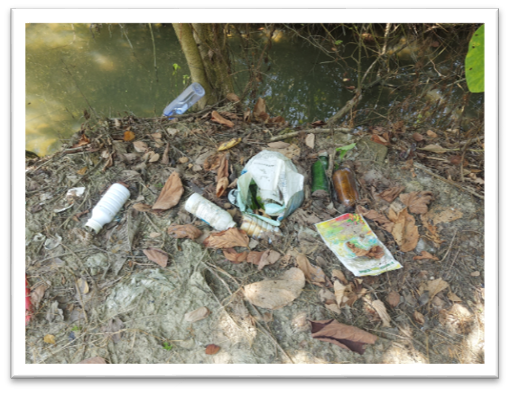YuhangYang (Talk | contribs) |
YuhangYang (Talk | contribs) |
||
| Line 159: | Line 159: | ||
<div class="Intergrated"> | <div class="Intergrated"> | ||
| − | <a href="https://2017.igem.org/Team:SSTi-SZGD/HP/ | + | <a href="https://2017.igem.org/Team:SSTi-SZGD/HP/Gold_Integrated">Intergrated</a> |
</div> | </div> | ||
Revision as of 06:45, 14 October 2017
 SSTi-SZGD
SSTi-SZGD



The initial idea of our iGEM project this year came from a situation that we discovered from one of the team member, Richard's hometown in a village of Western Guangdong province. We visited his hometown to investigate the current farming situation, and learned that chemical fertilizers were heavily used in the field. The reason behind was that the soil has been severely contaminated by overdose usage of pesticide, which causes land agglomeration and deprivation of soil nutrients. While usage of pesticide is important for agricultural and general inevitable, the natural way for soil recovery normally occurs through thorough land plowing and pause farming for a couple of years, as natural microorganisms do a good job degrading pesticide residues that remain in the soil. However, it takes time and patience. From what we saw in Richard’s village, farmers would not normally wait for natural recovery to happen, instead, they continue with more pesticides and then more chemical fertilizers.
In the meantime, local media has reported multiple incidents related to pesticide residues on food products causing health issues, as well as other news related to heavy pollution in rivers, water streams, and underground water by heavy metals and toxic chemicals potentially results from unauthorized release of pesticides.
It made us think what we can do as synthetic biologists, then we came up of an idea of making pesticide residue degradation products using genetic engineered bacteria cells. Besides working days and nights in our wet lab to make the products, this year, we also traveled to a number of places in Guangdong province to investigate how widespread the problem is, and how our proposed products could help. This formed the basis of our integrated human practice. We went to orchards, private gardens, farms, villages to talk to locals, farmers, government officials. In addition, we needed professional guidance and advice from experts in the agriculture fields, that is when we went to agricultural institutes in ShenZhen, and talked to the experts our the feasibility of our technique and experimental procedures. We were also honored to received special guidance and help from professor from Bioreactor Department of East China University to finalize our light-controlled expression vector. Finally, in order to under the procedure related to mass production of our products, we visited LEVEKING Biotech. Cooperation, one of the largest enzyme production companies in Southern China, and talked to their R&D and production managers about how we could commercial our proposed product. The ultimate goal of our project this year is to implement the entire system including light-control, enzymes and the device into the agricultural industry and solve the problem caused by the excessive use of the chemical pesticide.





